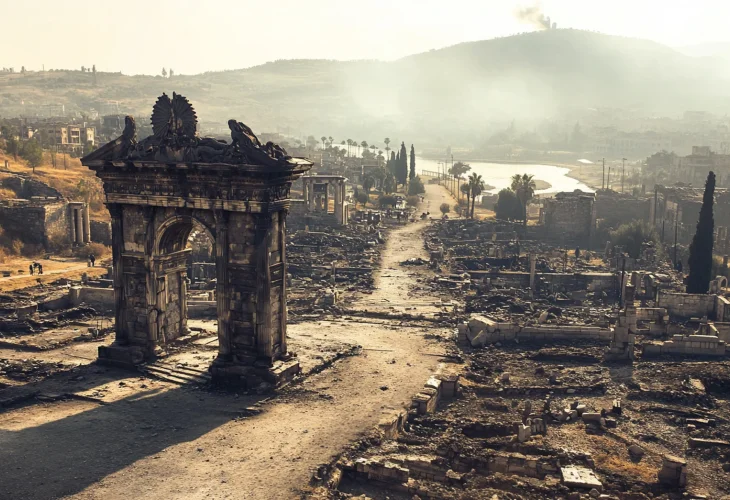History and Archaeology
Antioch: The Rise and Fall of a Great Jewish Community
How one of the world’s greatest cities became both a home and a graveyard for Jewish history

When you hear the name Antioch, you might immediately think of Antiochus and the story of Chanukah. But there is a deeper and lesser-known chapter in Jewish history connected to this ancient city, a story of privilege, tragedy, and resilience.
Once among the largest cities in the world, Antioch stood proudly on the banks of the mighty Orontes River, in what is now southern Turkey. The river, known in ancient times as the Arantes, flowed 620 kilometers from Lebanon’s valleys to the Mediterranean Sea. It had long been a backdrop to major battles, including Pharaoh Ramses II’s clash with the Hittites at Kadesh and the massive Battle of Qarqar, where Shalmaneser of Assyria faced twelve kings among them Ben-Hadad of Aram and Ahab, king of Israel, who together claimed victory.
In 300 BCE, Seleucus, one of Alexander the Great’s generals, built a modern Hellenistic city here, naming it Antioch after his son Antiochus I. This was not the Antiochus IV who infamously persecuted the Jews and provoked the Maccabean revolt but his name would become linked to Jewish memory all the same. Today the city is called Antakya, a modest Turkish town, but in its prime, Antioch was the “place to be.” It attracted settlers from across the Middle East, especially Jewish merchants, and was considered one of the top three Hellenistic cities of its time often mentioned alongside Rome and Alexandria.
The Jewish community of Antioch had unusual privileges from the very beginning. Many of its first Jewish residents were veteran soldiers from Alexander’s army who had been granted citizenship and rights. These rights were inherited by their descendants, making the Jews equal in status to other ethnic groups in the city. One remarkable law even allowed them to receive cash instead of oil rations, since Jewish law forbade the use of oil produced by non-Jews. They could then purchase kosher oil from their own community.
During the reign of Antiochus Epiphanes, when the persecutions that sparked the Maccabean revolt began, Antioch served as a major Greek military base. It is even said that the story of Hannah and her seven sons took place here. After the looting of the Temple, its treasures were brought to Antioch, and when the Maccabees emerged victorious, some of these treasures were given to the local synagogue. The sage Rabbi Apos once visited and taught Torah in that very synagogue.
But the community’s fortunes took a dark turn during the Great Revolt against Rome, just before the destruction of the Second Temple. In one tragic episode, the son of the community leader symbolically named “Antiochus” converted and betrayed his people. He incited the local Gentiles by claiming that the Jews planned to burn the city. Fueled by hostility and encouraged by Roman authorities already at war with the Jews in Israel, a violent massacre broke out in the Jewish quarter. Many Jews barely escaped with their lives.
Not long after, Titus destroyed Jerusalem and the Temple. As he traveled back to Rome in triumph, he stopped in Antioch, where locals urged him to expel the Jews. Titus refused, saying, “I have destroyed their city, burned their Temple, and decimated their land — where would I expel them to?”
Still, the tensions in Antioch persisted. When a sudden fire destroyed the city’s market and its archives of financial records, the same treacherous Antiochus again blamed the Jews, claiming they had set the blaze. This time, the Roman envoy Gnaeus quickly investigated and discovered the true culprits, Gentile debtors hoping to erase their obligations. He punished them severely and forbade any harm to the Jews.
A local legend claims that Titus placed the cherubim from the destroyed Temple’s Holy of Holies at Antioch’s gates as trophies of his victory, a haunting reminder of Jerusalem’s loss.
In the centuries that followed, life for Antioch’s Jews grew harder. As Christianity spread and took political power in the Middle East, the Jewish community declined. By the time Rabbi Benjamin of Tudela visited in 1175, he found only ten Jews left, working in stained glass, the last fragile sparks of a once-great flame in Jewish history.

